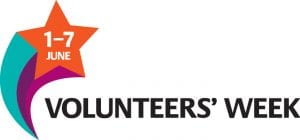Volunteers’ Week – A Day in the Life
By Vicky A Price, on 2 June 2017

Today is the second day of Volunteers’ Week , during which we are saying an emphatic THANK YOU to every single person who has offered their time and expertise over the past year to UCL’s SCAR department, without whom many a project would have been difficult or even impossible to complete.
There is a wide range of roles that volunteers can take up within SCAR: helping with events, sorting through new collections, enhancing cataloguing, assisting in exhibition preparation, helping with our media and online communications. Throughout Volunteers’ Week we intend to share a snapshot of some of these roles with you. Each week day from 1st June to the 7th June, a guest volunteer writer will bring you a ‘day in their life’.
The second installment comes from Chris Fripp, who has been volunteering with SCAR for about six months:
Chris Fripp – Research Volunteer
As a master’s student on the UCL Library and Information Studies programme, I’ve become really interested in scholarship associated with the history of the book. Following a workshop I attended with UCL Special Collections in the autumn of last year, I contacted Helen – Senior Library Assistant (Exhibitions and Outreach) – to ask about the possibility of undertaking some voluntary work with the department. I was looking to gain some practical experience in rare books handling, and thought I might be able to provide support in some way.
Since joining as a volunteer, I’ve been involved in an exciting new project to help create the forthcoming UCL Special Collections advent calendar for 2017. My task has been to conduct research on a series of rare nineteenth century dictionaries, looking specifically for seasonal words and definitions to present to an online audience during the Christmas countdown. When searching for the best definitions, the bigger the anachronism, the more interesting the former tends to be.
![Webster, The people’s dictionary of the English language (London, [1869?])](https://blogs.ucl.ac.uk/special-collections/files/2017/06/Chris-Fripp-image-267x300.png)
Webster, The people’s dictionary of the English language (London, [1869?])
 Close
Close


